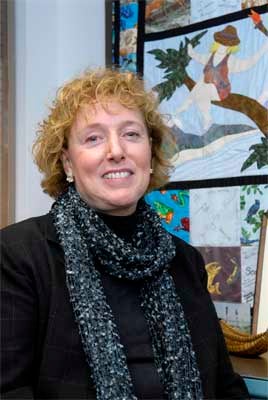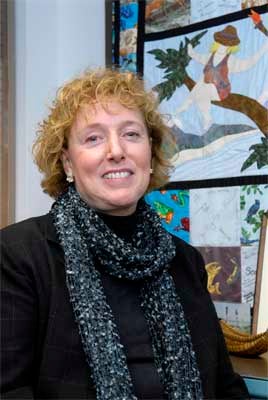 KINGSTON, R.I. — November 30, 2006 — The University of Rhode Island School of Education is studying and re-writing the book on how new elementary schoolteachers are taught to teach children about science.
KINGSTON, R.I. — November 30, 2006 — The University of Rhode Island School of Education is studying and re-writing the book on how new elementary schoolteachers are taught to teach children about science.
Education Professor Betty Young was awarded a $2.25 million National Science Foundation grant to study what prospective and current teachers need to develop their teaching skills using exploratory and inquiry-based science lessons. She takes on a “No Teacher Left Behind” attitude to teaching future educators the most effective ways to teach science to children. Research has shown the critical influence teachers have on their students’ life-long understanding and interest in the sciences.
Through the five-year study, “Change Associated with Readiness, Education, and Efficacy in Reform Science,” called the CAREERS project, Young is developing a new curriculum for current education students and tracking the results. This curriculum brings together researchers and scientists from education, psychology and the sciences with district scholar-practitioners to reshape the students’ preparation.
“We have seen that inquiry-based learning works well to engage children in the sciences, but now we need to determine what stops teachers from practicing such a proven approach,” said Young, who has focused on curriculum development for college students majoring in elementary education. “We want to find solutions to overcome the obstacles and develop strategies to change teacher preparation and practice.”
The CAREERS research team is studying the beliefs, attitudes and knowledge of 300 student education majors and 500 mid-career teachers about their science teaching, science content knowledge and readiness to change teaching practices. In addition, the science teaching of all 300 students will be reviewed during their University science methods course. Of these, 60 students will be followed through their student teaching experience and then 30 through their first years as teachers. Sixty of the mid-career cooperating teachers who supervise the student teachers will also be studied to examine the effects of coaching. science methods courses, and focus on the need for mentoring for early career teachers, and job-embedded professional development programs for all teachers of science. The program is structured to provide a complete view of teacher development — from undergraduate years to mid-career — to examine long-term effectiveness of inquiry-based science teaching and the critical factors influencing its practice.
Young said the concept behind this research effort actually began with a science professional development grant ten years ago. In 1996, she worked with a group of scientists, educators and volunteer teachers from one Rhode Island school district to develop a means to make math and science education ‘real’ and ‘touchable’ for elementary school-aged children. They developed GEMS-NET, the Guiding Education in Math and Science Network, assembled a common K-8 science curriculum using state-of-the-art science kits and modules developed through NSF funding by Smithsonian and Berkeley’s Lawrence Hall of Science. Since that time Dr. Young has led the creation of an entire network of teachers and school systems supporting inquiry-based science learning.
Heralded nationwide, GEMS-NET received an initial $45,000 Eisenhower Higher Education grant followed by a $1.4 million, five-year NSF grant, a one-year supporting NSF grant and has now contracted for six years of support by nine school districts in Rhode Island. The program has become mandatory training in the partner districts, and several other districts have purchased kits and participate in the teacher professional development so the approach can be used in their schools.
“Our volunteers have taken a “No Teacher Left Behind” approach on this model of teaching, so that none of their students will be left behind from learning about the sciences,” said Young, who lives in Exeter. “We’re very proud that this approach has been adopted and loved in districts around the country. Now this CAREERS program will take GEMSNET a few steps further.”
The CAREERS project manager is Sally Beauman and professors working on the multidisciplinary grant include Minsuk Shim and Kathy Guglielmi from the School of Education, Barbara Sullivan-Watts and Barbara Nowicki from the Graduate School of Oceanography, and Paul Bueno de Mesquita from the psychology department.

